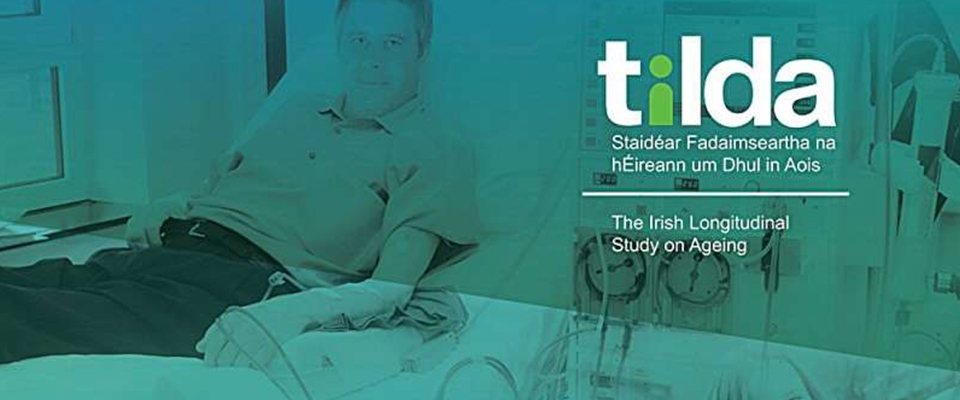
Authors: Trinity College Dublin
Source: Medical Xpress
Findings from the largest study to date in Ireland to characterise the population affected by chronic kidney disease (CKD), over the age of 50 years, have been published.
While valid attempts have been made to report the prevalence of CKD in Ireland, to date none have focused on a longitudinal cohort study based on a stratified random sample of the general population. Similarly, the incidence of CKD in the Irish general population has not been investigated to date and the Irish Longitudinal Study on Aging (TILDA) provided the research team with the most suitable substrate in which to study this.
The presence and severity of CKD identify individuals who are at increased risk of adverse health outcomes, including cardiovascular disease, premature death, and potential progression to requiring dialysis or a kidney transplant and premature mortality; and as such, preventing and managing CKD constitutes a key aim of overall management.
The findings are released in a report from TILDA and the National Renal Office and are based on TILDA data from 2009–2011 "Wave 1" and 2013–2015 "Waves 2–3."
CKD prevalence in adults aged 50 years and over in Ireland is rising. While this is likely to be primarily related to ageing and improved survival in the general population, these trends highlight the importance of continued public health action to raise awareness and to improve the care and outcomes for people with CKD.
Pertinent findings from the study:
- CKD was present in 15.6% of people aged 50+ in Ireland, which equates to approximately 226,000 people or 1 in 7 of the population.
- 98% of people who had CKD were unaware they suffered from it.
- Whereas blood pressure management should be tightly controlled in CKD to prevent or slow down progression, blood pressure was poorly controlled in CKD in Ireland.
- CKD is becoming more common over time in Ireland, consistent with Ireland's rapid demographic changes, highlighting the importance of action in primary and secondary care to raise awareness and to improve the outcomes for people living with CKD in Ireland.
- New cases of CKD in Ireland in people aged 50+ are occurring at a rate of 16 people per 1,000 person-years of follow up which will likely also contribute to substantial future demand on Nephrology services and hospital inpatient stay now and in future.
- Hypertension was the most common CKD-related condition in the Irish adult population. The estimated prevalence of CKD in Irish adults aged 50+ years without diabetes and hypertension was 6.22% based on Wave 1 data and 10.01% based on Wave 3 of TILDA. Age, blood pressure, HbA1c, BMI and hypertension were significantly associated with the presence and severity of CKD.
The increasing prevalence of CKD has implications for future treatment policies in nephrology in Ireland, including health care resource allocation planning as part of Sláintecare as well as the implications of new treatment options for CKD on the Chronic Disease Management Programs in Ireland.
New treatments proven in trials to alter the course of CKD thereby reducing progression to established kidney disease, are now also available for patients.
Recommendations:
- Increased awareness of CKD is needed and of the adverse health outcomes associated with it including, cardiovascular disease, kidney failure and premature death.
- The incorporation of chronic kidney disease (CKD) into the HSE Chronic Disease Management Program for primary care may facilitate improved care of patients with CKD in Ireland.
- The introduction of medications known to reduce rates of deterioration in kidney function and reduce cardiovascular risk such as SGLT2 inhibitors, GLP-1 analogs, and non-steroidal mineralocorticoid antagonists where appropriate.
- Improve blood pressure control in people with CKD in Ireland based on international guideline targets and aim to manage their additional cardiovascular risk factors.
Lead author Prof. Donal Sexton of TILDA and Consultant Nephrologist at St James's Hospital said, "This report is extremely important for people with chronic kidney disease living in Ireland since it highlights not only how common it is but also emphasises the public health requirement to improve awareness and treatment in the light of new approved medications. The incorporation of chronic kidney disease into the chronic disease management program in Ireland may facilitate improved treatment of the condition in primary care."
Prof. Rose-Anne Kenny, principal investigator of TILDA said, "Ireland is the fastest ageing country in Europe. In Ireland, we spend one fifth of our lives with disability and significant disease. CKD is an important and hitherto neglected cause of such disability in ageing. The aim of this TILDA research is to characterise CKD in adults in Ireland and raise awareness of how common it is (1 in 7 adults over 50y) and how, if it is identified sufficiently early, we can manage its course and lessen its more severe health consequences. The data will assist new screening, referral and management pathways for CKD and increase independent living and quality of life for Irish adults."
Prof. George Mellotte, national clinical director for renal services said, "The National Renal office (NRO) proposes to use the clinical epidemiology data from this report to help inform the design of the model of care and service development for early chronic kidney disease in the community and to advocate for CKD to be included as part of the National Chronic Disease Management Program."
Prof. Colm Henry, chief clinical officer in the Health Service Executive, said, "CKD is one of the most common comorbidities among the conditions already covered by the Chronic Disease Management Program. In the advent of new disease modifying medications, screening for CKD in high-risk groups is of paramount importance, in particular in primary care and opportunistic screening in secondary care. This work will help inform not just our renal service, but also chronic disease and renal transplant programs."
Carol Moore, CEO of the Irish Kidney Association said, "The Irish Kidney Association congratulates the National Renal Office and TILDA for their impactful study on chronic kidney disease (CKD) in Ireland's older population. The high prevalence of CKD in those who are 50 years and older and extremely low awareness among those affected highlights the need for more education around CKD and that it should not be viewed in isolation but rather as an integral part of other health conditions such as diabetes, high blood pressure, and cardiovascular disease.
"A holistic and collaborative approach will ensure better health outcomes and reduced health care costs. The results of the survey reinforce the Irish Kidney Association calls for CKD to be integrated into the HSE National Chronic Disease Management Program as a crucial step forward."
More information
This article was from Medical Xpress and was legally licensed through the DiveMarketplace by Industry Dive. Please direct all licensing questions to [email protected].

Disclaimer: Novartis Ireland Limited accepts no responsibility for the content, accuracy, interpretation or out of use of the information contained within this article or its use of linked websites.


